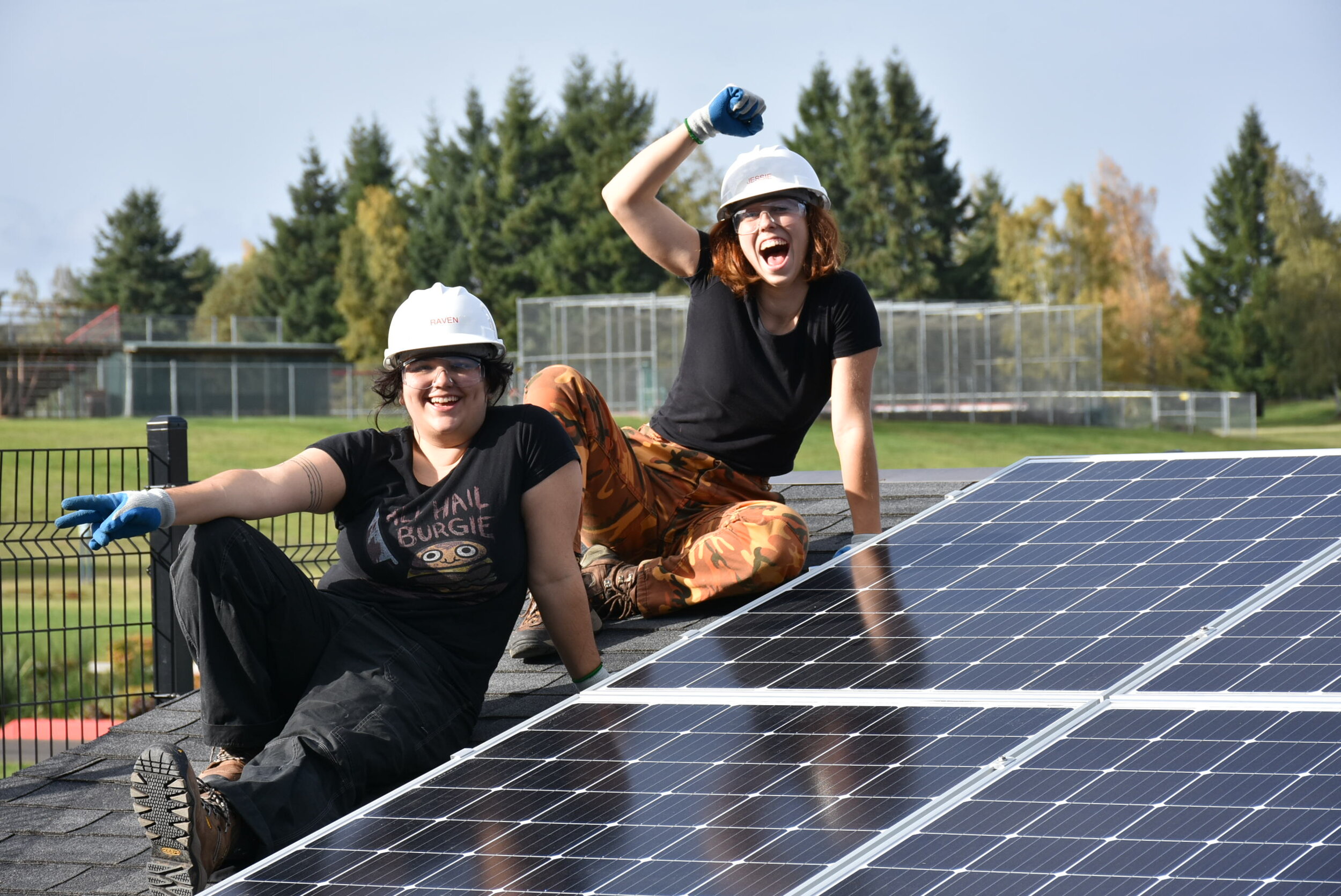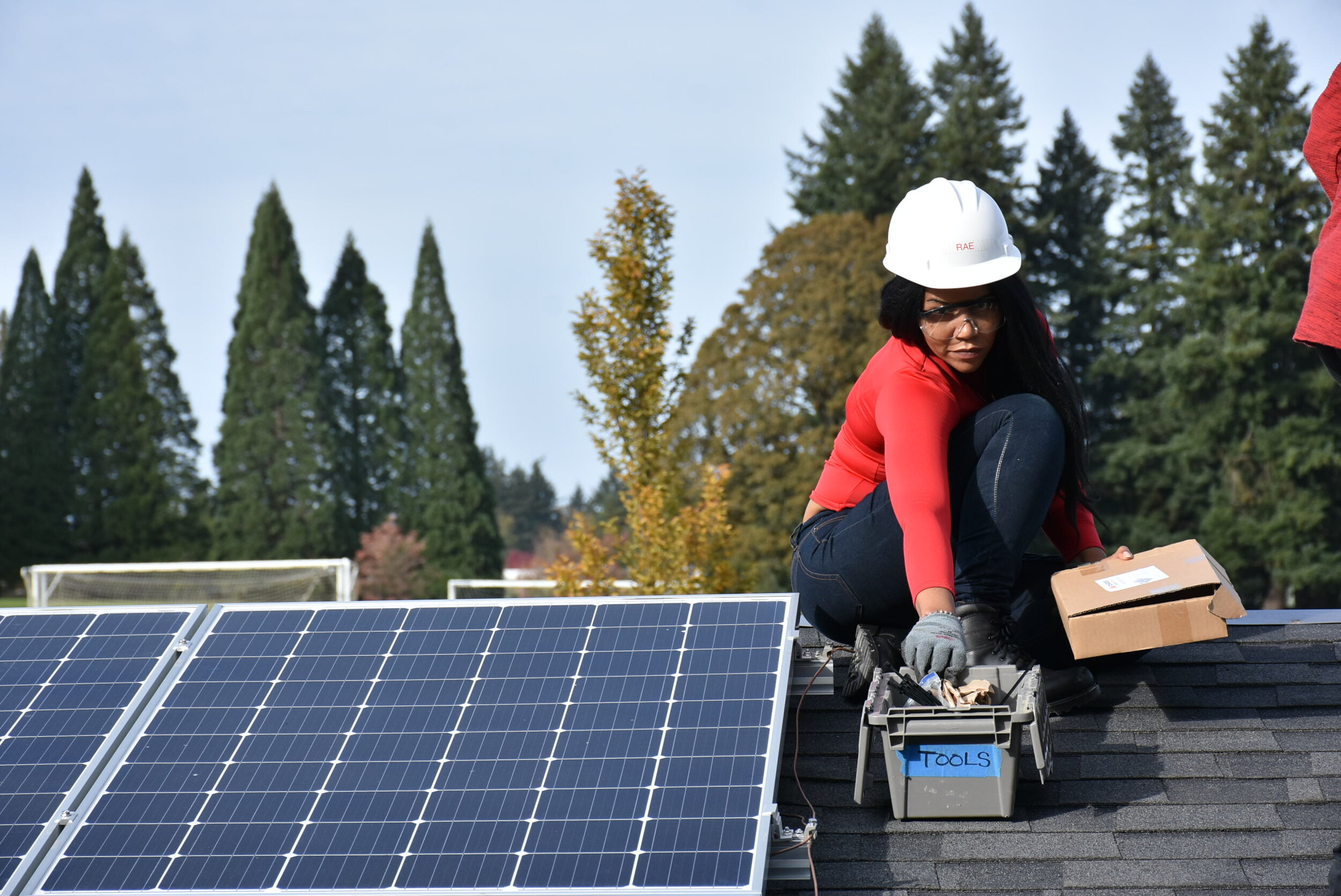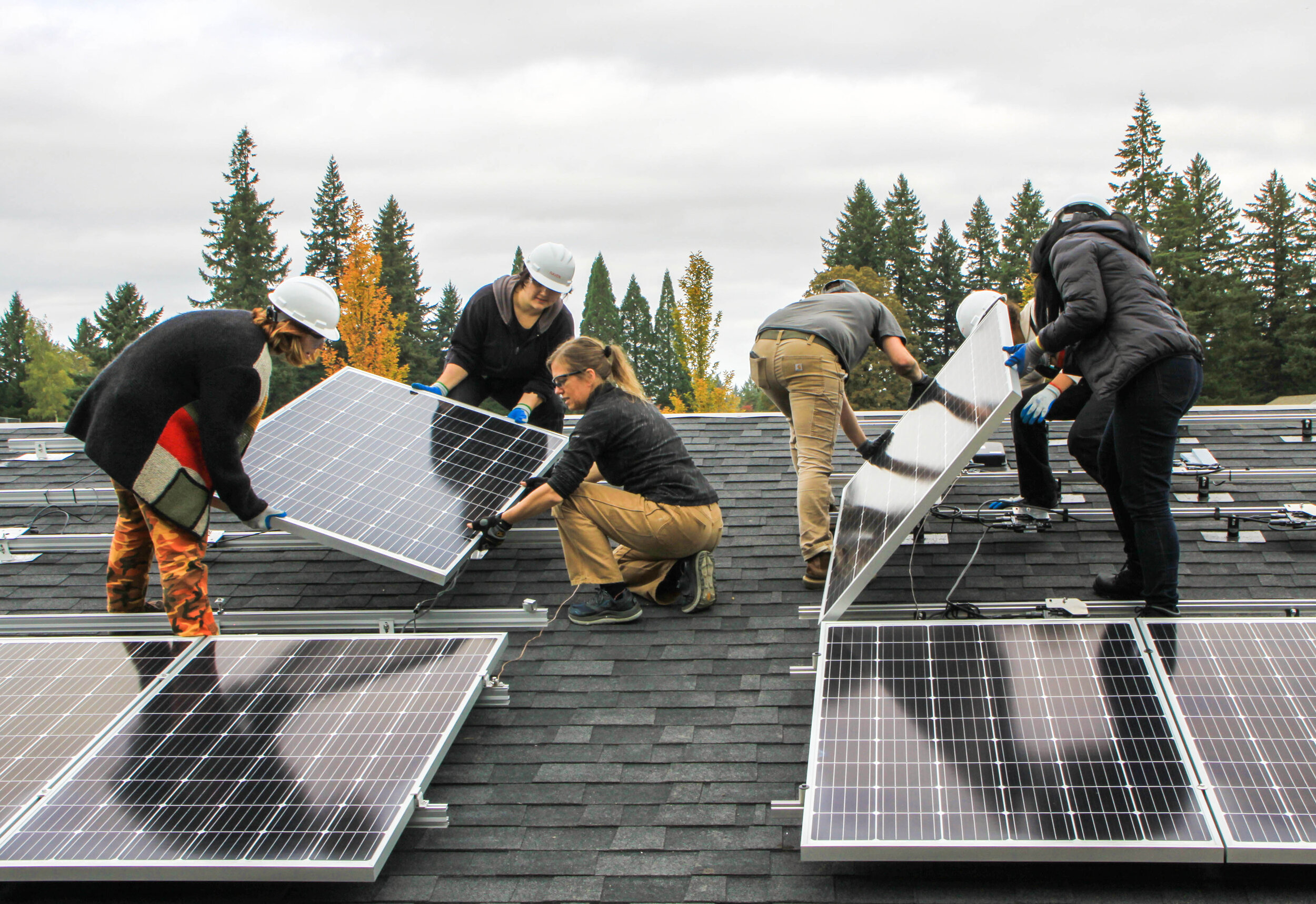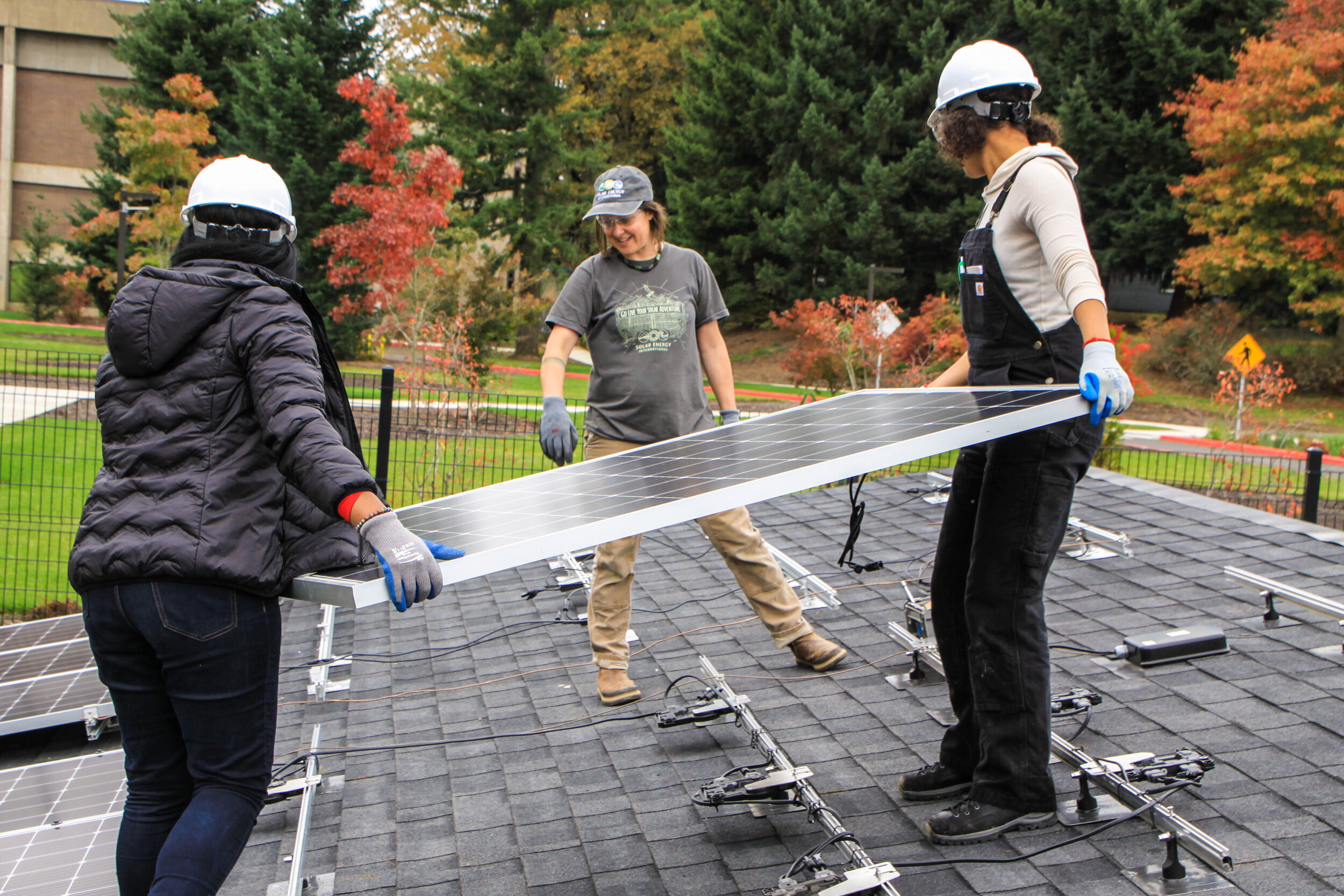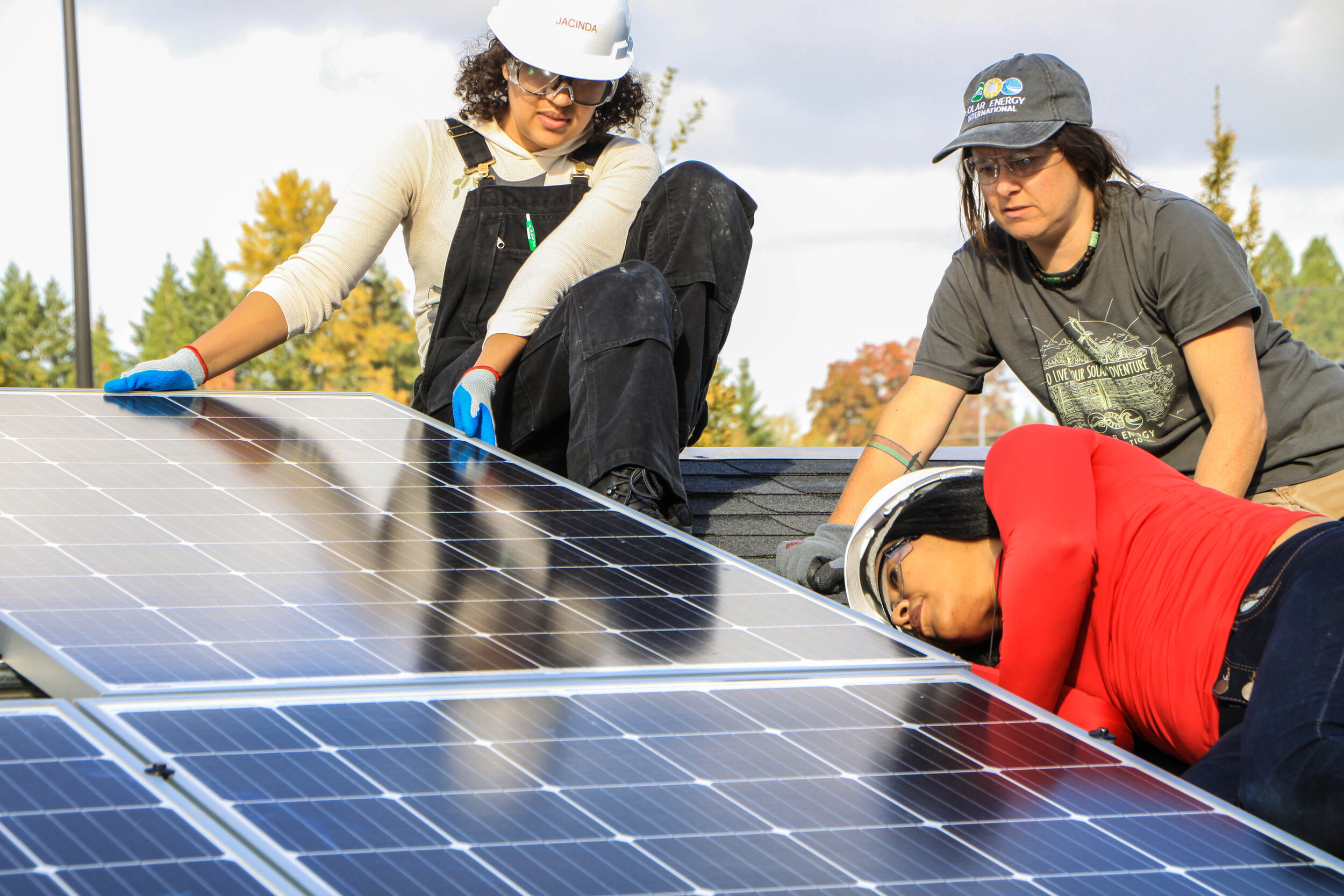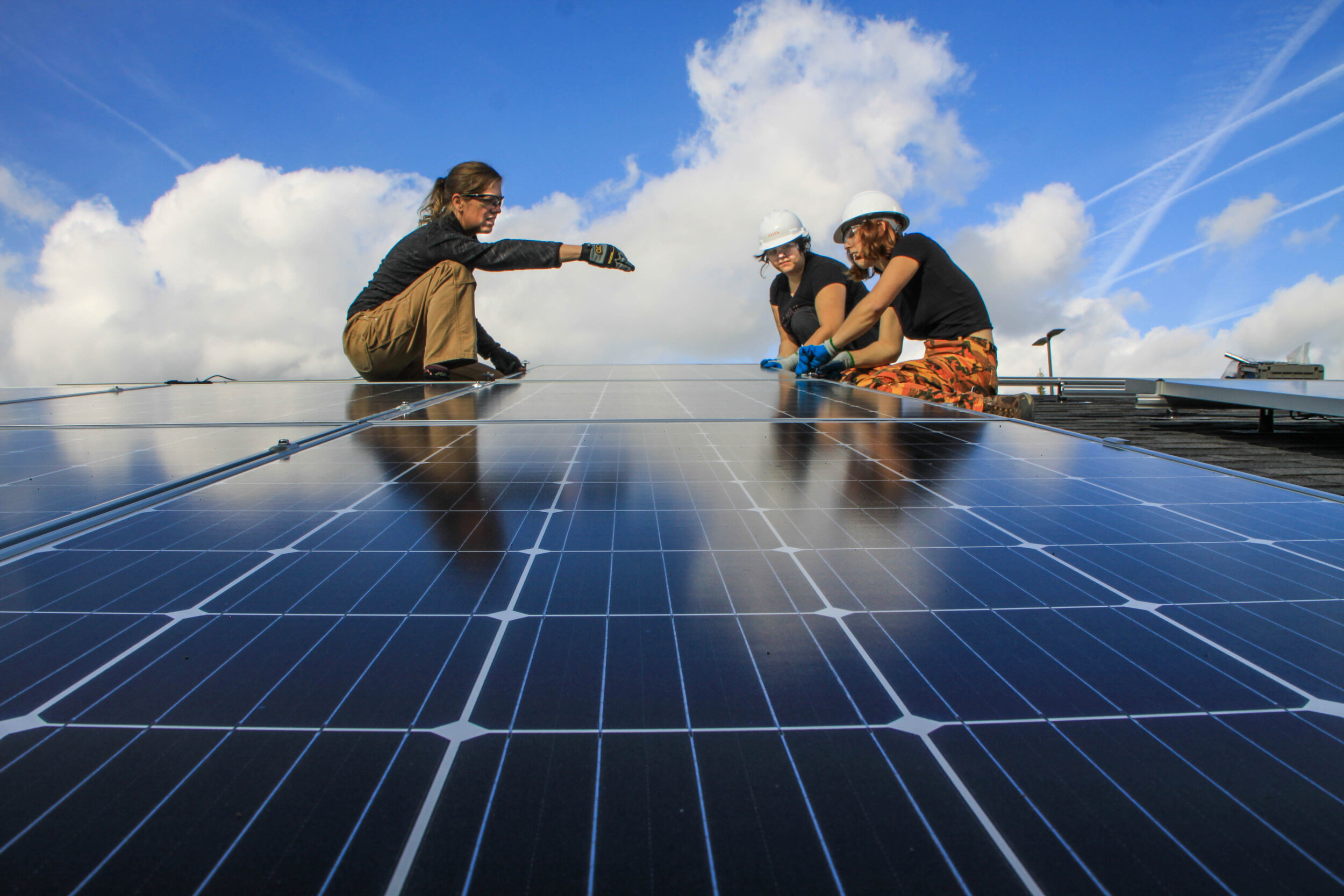In October 2019, Oregon Solar Energy Industries Association (OSEIA), Solar Energy International (SEI), and Energy Trust of Oregon presented the first three-day Solar Industry Readiness Training pilot to Oregon Tradeswomen Environmental Workers Training program students. Clackamas Community College Renewable Energy Program donated its new outdoor lab training facilities so students could experience classroom and hands-on training. The pilot curriculum included basics of grid-tied PV systems, covered roof penetrations, racking basics, safety, and more. Students earned a Fundamentals of Grid-Tied PV Installations certificate from SEI. Sunbridge Solar volunteered to host students at an install site, and the install team walked the students through what their install days may look like and showed their tool kits and van setup. The pilot concluded with sharing personal solar stories, discussing Oregon’s solar and job market, and resources for students to connect with Oregon’s solar industry.
Why a class for women? Women working at home use the majority of energy in the world, from cooking to pumping water to agricultural processing, and women’s work often goes unpaid and therefore unrecognized. When women are trained in the installation and maintenance of renewable technologies, the projects are more sustainable. Solar technology can ease women's workload, allowing more time for education and income-earning activities.
Women are extremely underrepresented in the renewable energy workforce. They are also underrepresented in co-ed technical trainings. Many women report feeling less intimidated to use new tools and more at ease in a technical learning environment shared with other women. In these classes they can get involved with hands-on activities that are often dominated by male counterparts.
Women make up 27% of the US Solar workforce
Nearly 1 billion people are living without electricity, 50% of whom reside in sub-Saharan Africa. An estimated 70% are women
Access to energy and the education of women are recognized as essential for lifting communities out of poverty, yet there is a critical lack of women being trained in technical trades
90% of employees say mentorship is important to their career advancement
Only 37% of US solar companies offer mentorship opportunities
